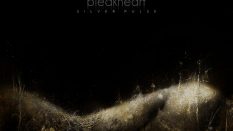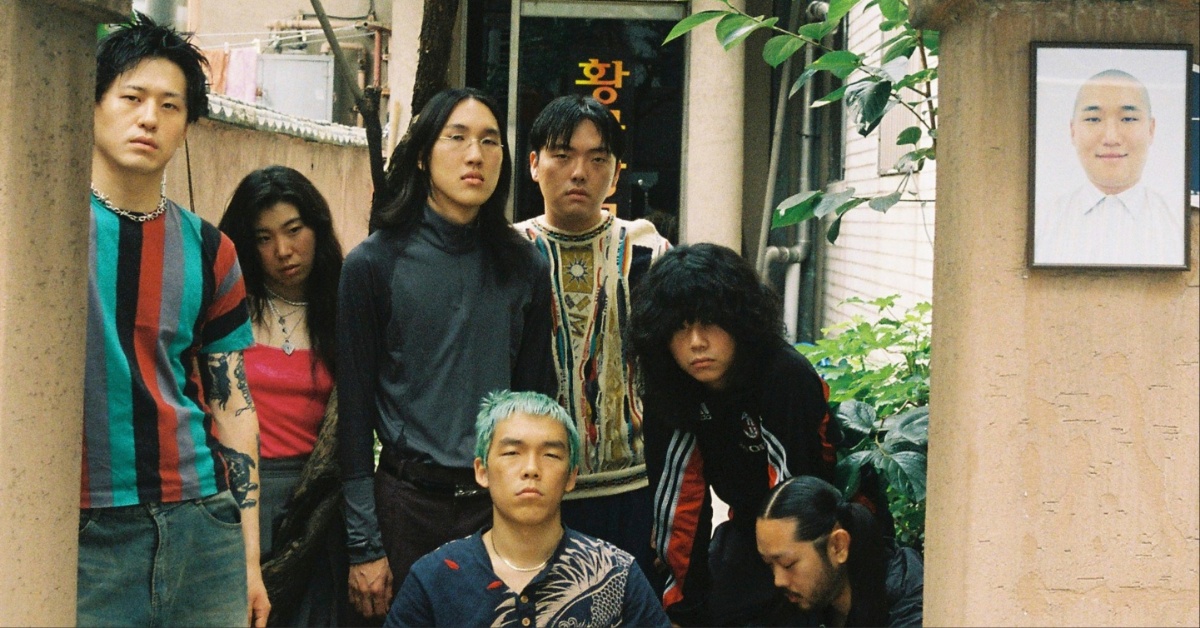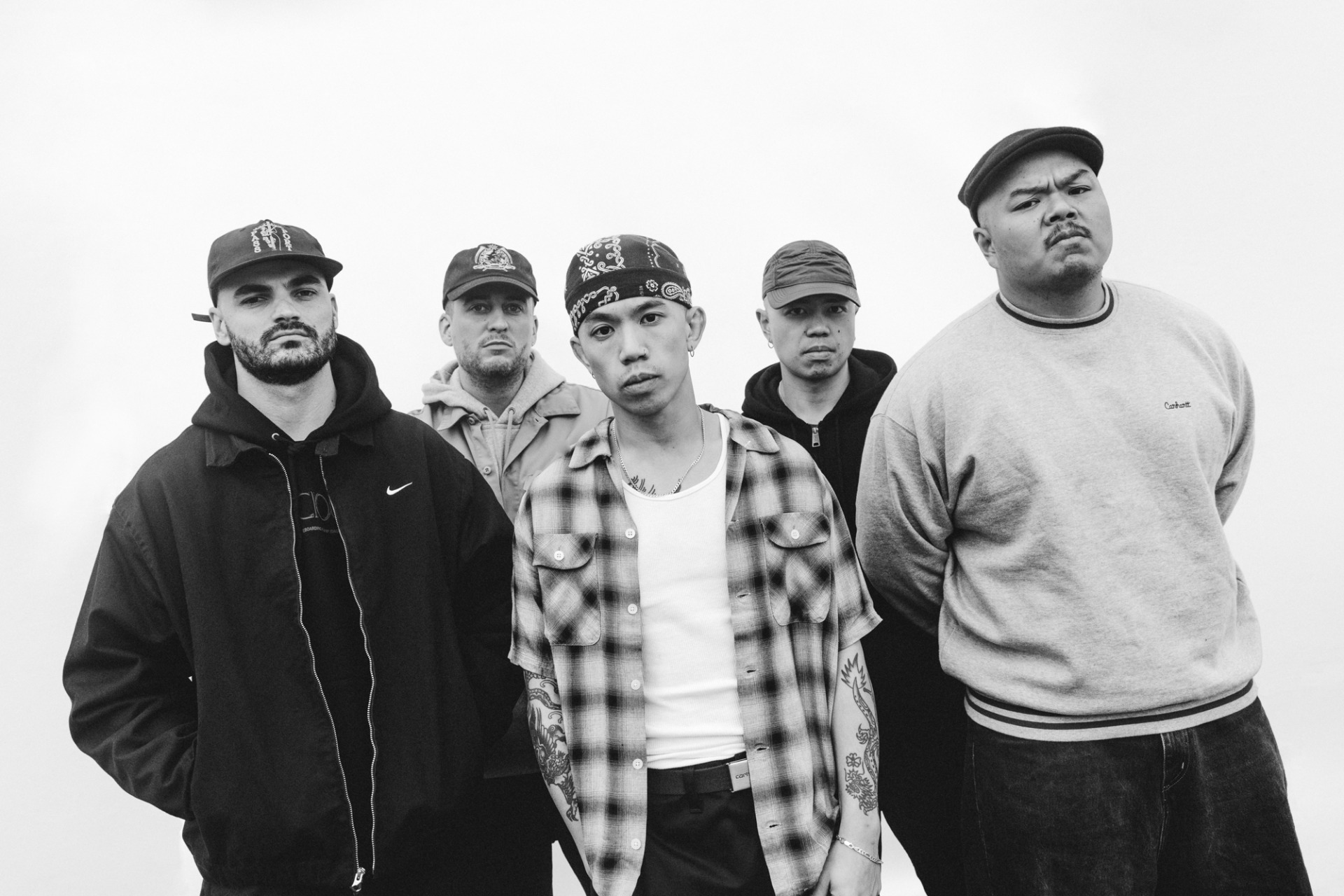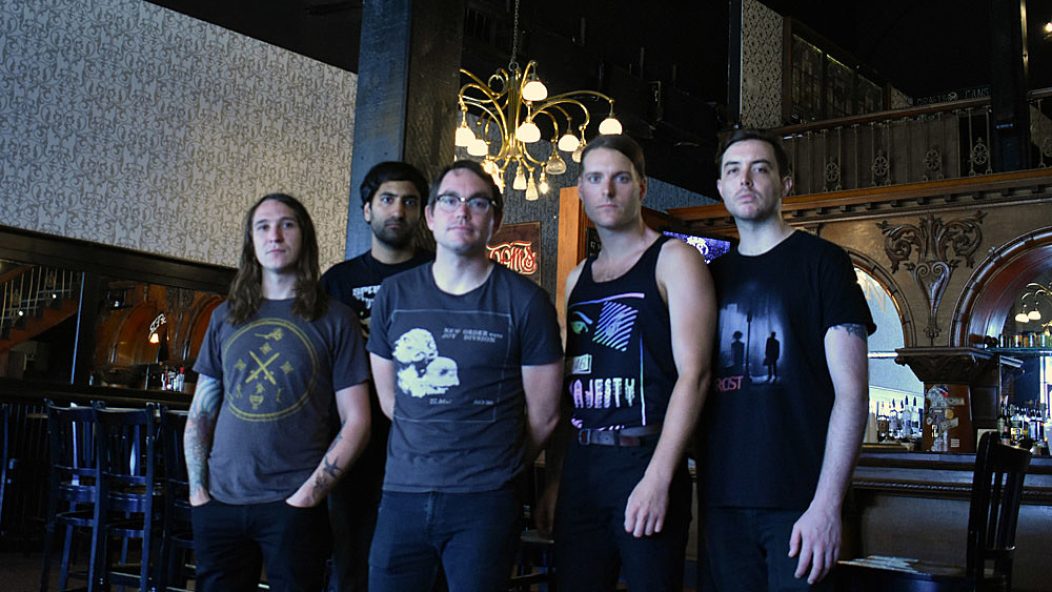
Deafheaven Brings Their "Ordinary Corrupt Human Love" Tour to Philly
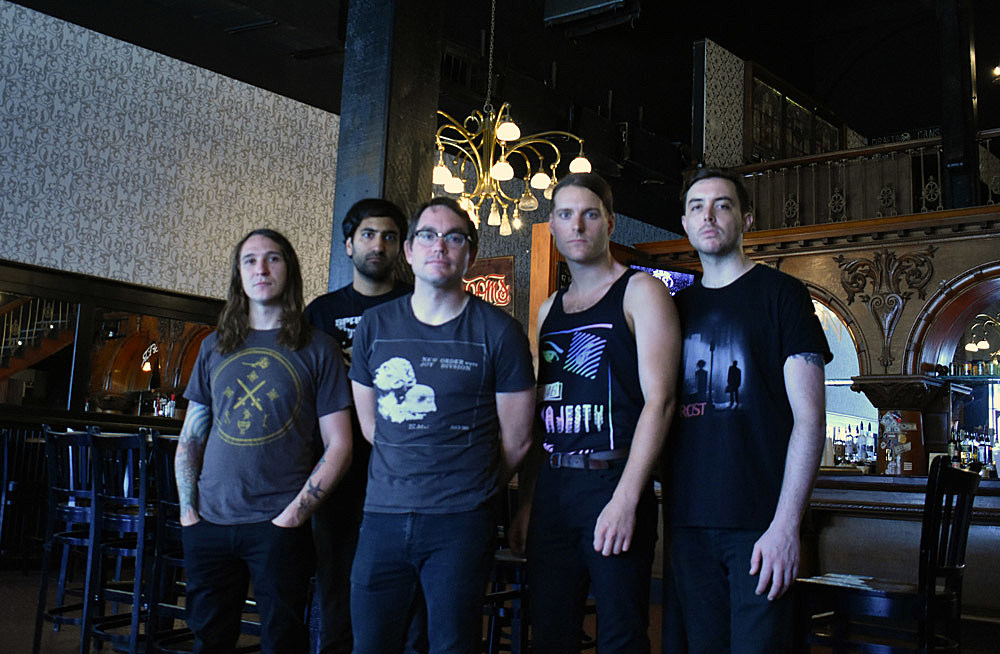
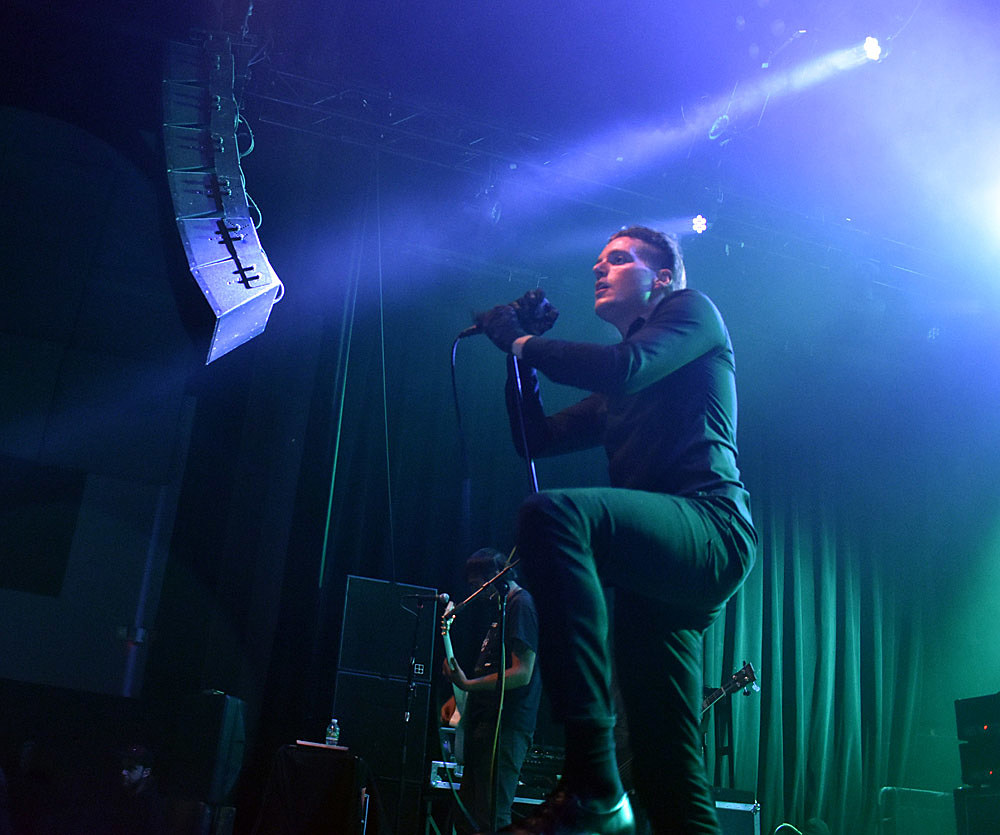
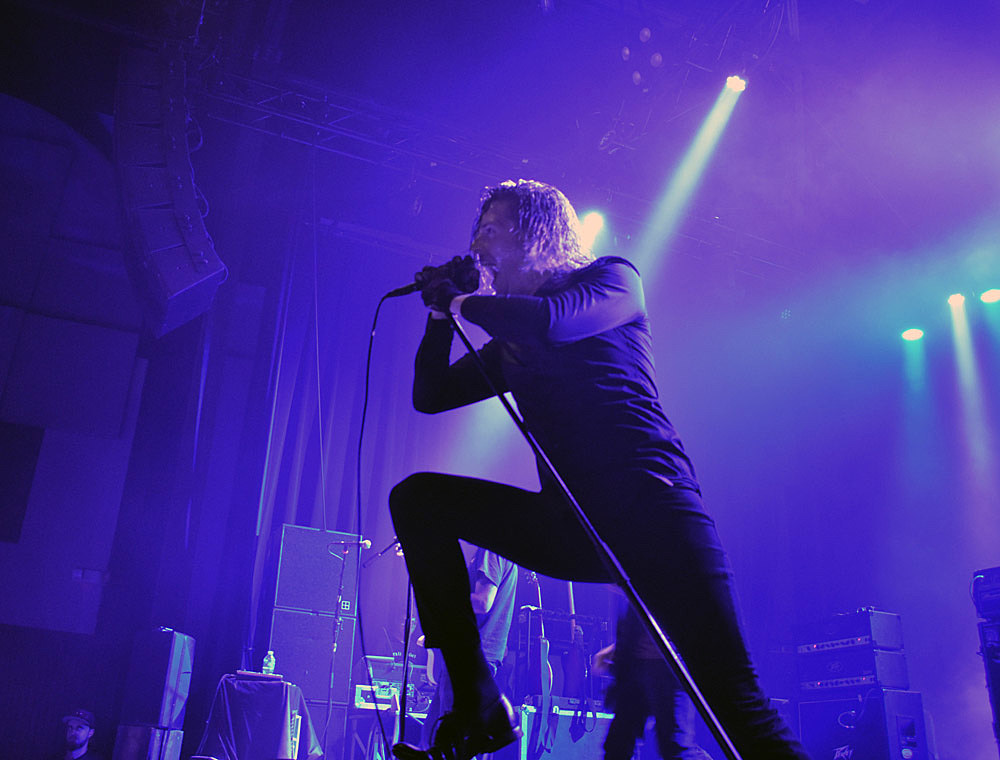
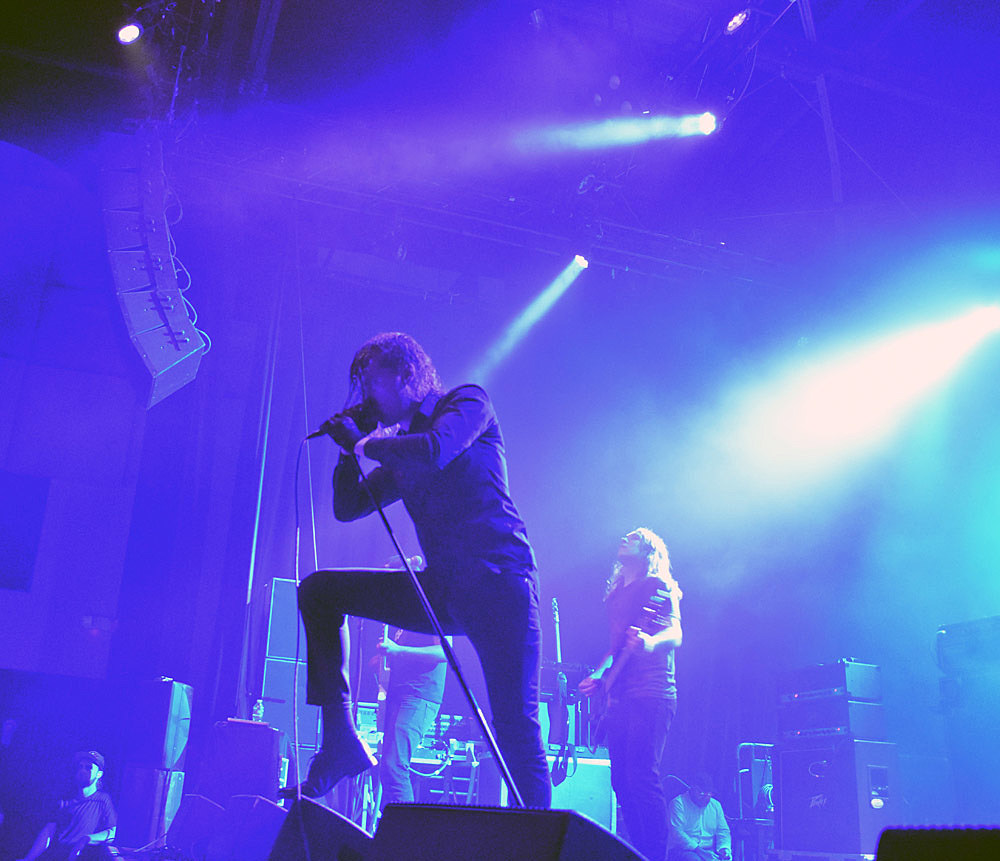
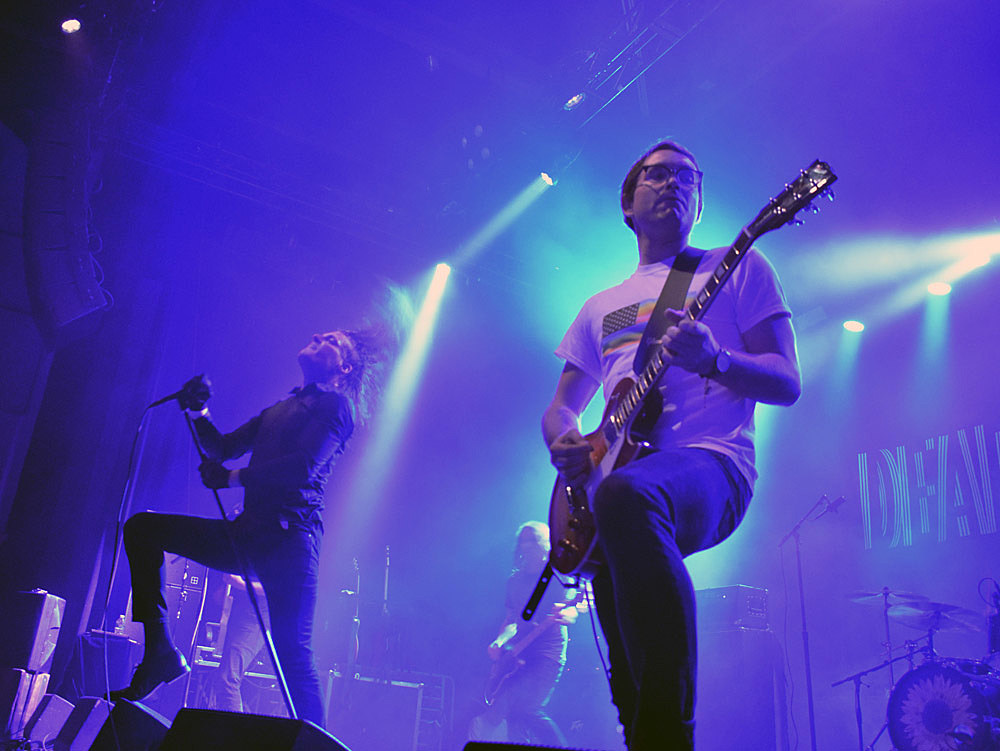
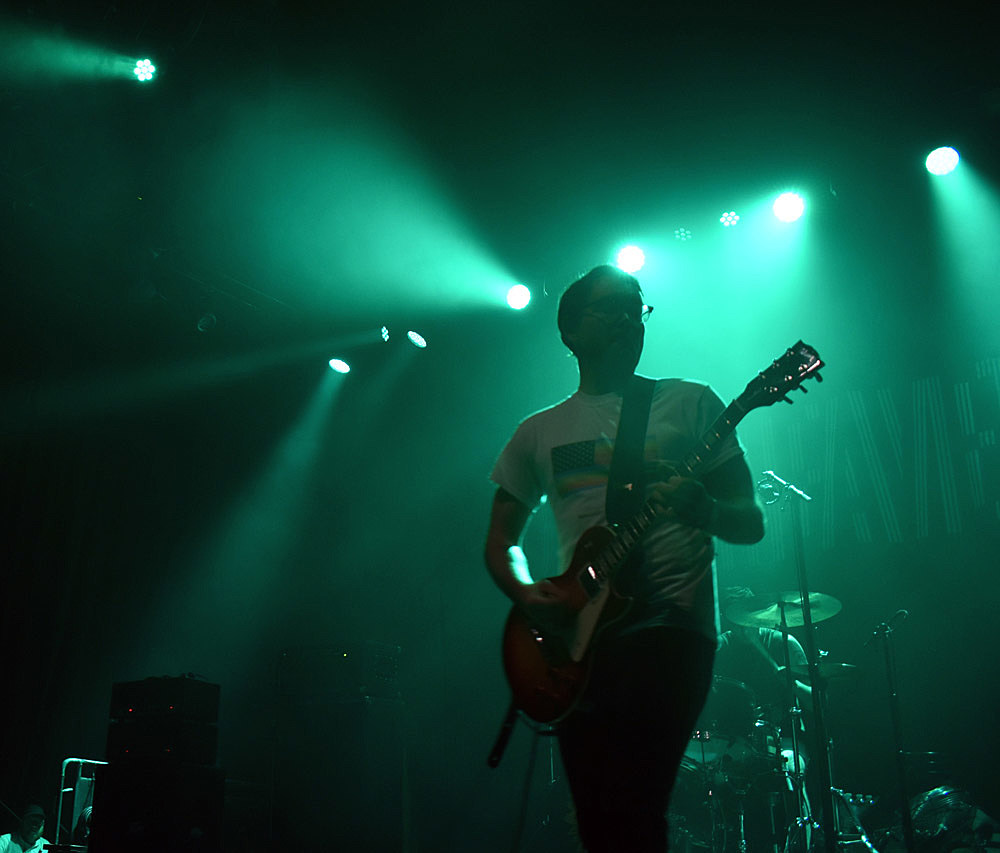
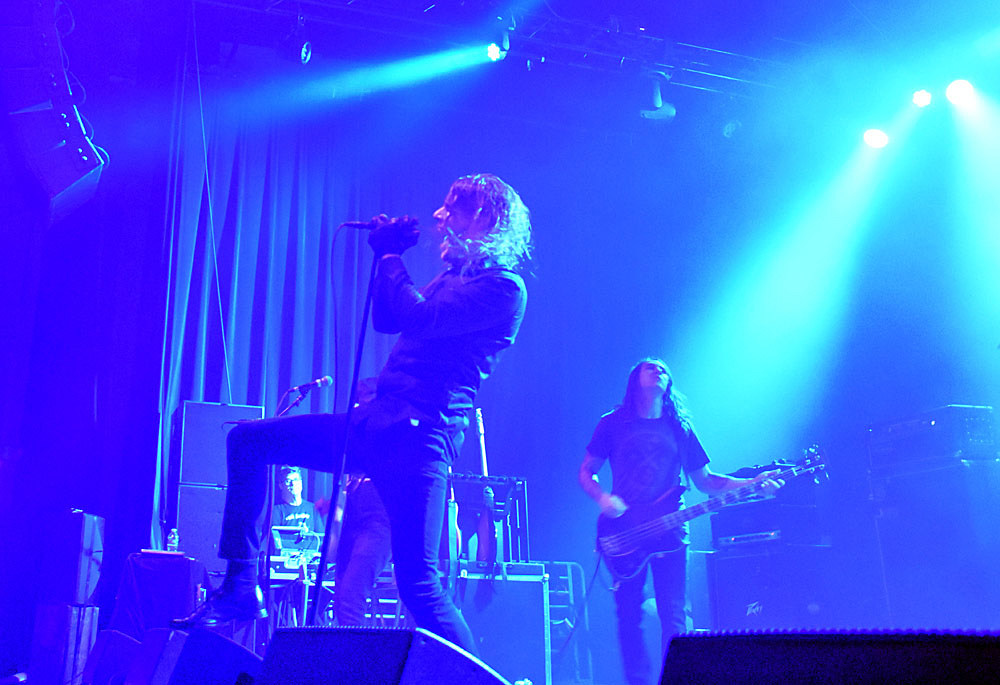
—
photos by Tashina Byrd
…
On paper, Deafheaven shouldn’t be playing with Drab Majesty every night, even with Uniform’s fusion of industrial music and 1980s hardcore opening the show, and even with Deafheaven being somewhat unclassifiable after four full-length albums. Drab Majesty, wearing androgynous wigs and costumes and playing synth-pop, is too much of a contrast — even if nobody is really sure whether Deafheaven is metal, Drab Majesty is decidedly not.
Watching the show, though, it all makes sense.
Even at their loudest, Deafheaven always had a penchant for pop and circumstance. Sunbather was a revelation not because it was the heaviest album of 2013 (it wasn’t) nor because its cover was bright pink (it was, but that didn’t matter). The album had hooks: genuine pop hooks, and sagaciously written ones at that. That is why subversive bands escape niche audiences. Pixies and My Bloody Valentine didn’t escape 1980s indie obscurity by being cults of personality. Those bands were ultimately as accessible as they were subversive, and the same formula applies to Deafheaven 30 years later.
Drab Majesty sounds like they would have fit in 30 years ago pretty well; however, their retro synth-pop also made the perfect foil for Deafheaven. Metalheads in patch-encrusted jean jackets danced — yes, actually danced — to the group. And then Deafheaven performed an hour-and-a-half set of songs that were in their own way just as catchy, just as memorable, and just as captivating as their minimalistic touring partners.
George Clarke didn’t need to see it to believe it. The Deafheaven vocalist (backstage before the show in a room so small the door couldn’t be opened because of a single table that the band’s tour manager set up for his office) was confident it would work.
“I consider opening bands to be an extension of ourselves, an extension of our tastes, and I feel like if people are open-minded enough to enjoy what it is that we do to begin with, typically they’ll like who we take out. Last year, it was This Will Destroy You, and then the next tour was with Youth Code. I like taking out industrial acts, I like taking out post-rock acts, and I like taking out more metallic acts. This is just another example of that. I think that we’ll always continue to try and make an interesting show for the concertgoer.”
There’s a case to be made that the newly released Ordinary Corrupt Human Love makes it easier for a band such as Drab Majesty to segue into. The album is honestly no more or less poppy than predecessors, though that aspect of the band feels more prominent because there’s more room to breathe. It feels like their Sad Wings of Destiny — both albums are filled with piano and songs that go from dirgey to epic, only Judas Priest was recording theirs as a follow-up to a dismal-selling debut with nothing to lose.
Deafheaven, though, are riding one of the more unlikely success stories of our time.
…
…
“It wasn’t necessarily the intent,” recalled Clarke, “but I do remember during the writing process listening to the riffs that Kerry [McCoy] and Shiv [Mehra] had come up with… and in our mindset in general, we early on started calling it our celebration record. We were coming off New Bermuda which was a bit of a darker sound, a bit of a darker time. I think we really just wanted to get away from those feelings. And what came out was very natural.
“As far as the recording experience, it was very much a focus on togetherness and a huge focus on appreciating what it was that we had, really realizing that being able to write music and perform music for a living is quite a gift.” Clarke continues: “So we wanted to have fun with it again, and we wanted to write music. We wanted to not have any kind of constraints. So, this record, because of that, I think, is a bit more ambitious in certain ways. I think we took some liberties, I think we stretched our sound in certain ways, and I’m happy that we took those risks and moved that way.”
Did Deafheaven worry about taking those risks?
“Not worried necessarily, but we definitely, especially [on] the track ‘You Without End,’ which is all piano-driven — I remember halfway through writing that song, I was like, ‘all right, we’re doing it,'” he laughed. “It was more exciting, though, because we were really allowing ourselves to do whatever that we wanted to do. Sometimes that can be risky, sometimes that can be awkward, sometimes it can be pulled off. I would like to think that we pulled it off.”
As is often the case when a band is tentatively stepping out of its comfort zone, there was an epiphany which allowed Clarke and his bandmates to realize that they were on the right track.
“There’s a part [on ‘You Without End’] where Shiv comes in with this sort of Brian May lead — when he did that in the practice space we were like, ‘Yes! Yes!,’” he smiled. “That feeling made me think, why are we questioning this? If we all feel that excitement from that little thing we should work on this song and we should really go in that direction. And so we did.”
While repeatedly listening to Ordinary Corrupt Human Love, I imagined myself churning out a pretentious 2,000-word thought-piece theorizing that the fury of New Bermuda was all about Deafheaven proving to the world — or even themselves — that they were a real metal band, and that the new album was the group finally concluding that such silliness really didn’t matter. It’s a compelling narrative, but according to Clarke, it’s nonsense.
“We are comfortable, and every record is simply just a reflection of where we’re at during that time,” he explained. “This time around, we were feeling more positive than we had been in previous years, so I think that translated. With press and the way people view our music, I think it can be a little a grander than how we do.”
While Clarke and the two guitarists were creating lush harmonies out of their patented shoegazing guitar swells, drummer Daniel Tracy seems to be the one element of the band that unambiguously and powerfully pays a debt to the dark arts. The same songs on Ordinary Corrupt Human Love could be remixed with fewer bludgeoning blast beats and the whole tenor of the album would change drastically.
Clarke explains: “Dan for us — we always joke he’s [the] not-so-secret ‘secret weapon’ because he does shape the songs in a lot of ways, and his percussion really gives life to the heavier sections. They are reliant on his kind of constant pummeling. In fact, there are times when we’re writing things where I will step in and be like, ‘beat that up, that needs a double-kick right there!’
“He’ll be like, ‘you think so?’ ‘Yeah, hell yeah!’ Then, all of a sudden, this kind of regular, straightforward rock thing becomes this powerful metal part simply because he’s adding another foot to it. I love stuff like that! He carries that weight and he does a beautiful job at it, I think.”
Bassist Chris Johnson joined the band when Stephen Clark quit after touring for the last album ended. This was his first album with the band and according to the vocalist, he had a huge impact on the new album.
“For people who are really familiar with our catalog, I think it’s super noticeable how much the bass is stepped up on this record. There are parts, for example on ‘Honeycomb’ — there are sections where my favorite part is the bass line, and that wasn’t necessarily a thing that we’d done before. Our previous bassist Stephen [Clark] is great and is a good friend of mine, but he stuck mostly to the rudiments. Chris is a bit more comfortable with the instrument. I think that he is a bit more comfortable with being creative with it.
“It’s also in part because Kerry and Shiv allowed him to do that,” he elaborated. “Kerry in previous years had much more of a stranglehold on the writing process. Everything is evaluated, but I think you can feel him letting go a little bit more and I think you can hear people’s personalities on this record a lot more. You can really hear Chris’ personality with his bass playing and you can really hear Shiv and Dan with their playing as well.”
Although the album is getting mostly glowing reviews, there’s a contingency that remains unimpressed — the metal purists who disparaged the band for failing to be grim, true, or real likely haven’t had their minds changed. It’s a cliché for a musician to say that they ignore the press, which makes it surprising and refreshing when Clarke concedes that he does pay attention to what is being said about the band.
“I don’t indulge in it. I try not to, especially with good press. I think that will hurt people more so than the negative stuff. I think that it’s important not to drink your own Kool-Aid,” he said, contemplatively. “It’s hard to avoid; for me, I just like to keep my head down about it though. I mean, I know that the noise is there. For me, what’s important is making something that I can look back on and feel proud of, creating something that has a bit of permanence to it, and then playing shows.”
He pointed to the walls of the room around him, as the muffled sound of Uniform soundchecking reverberated throughout the space.
“This, to me, is my concern. I want to perform these songs the best that I can. I want to give people a good show, I want to pick cool opening bands to have this experience with us, and I want to give back to people who have taken the time to appreciate our music. I think that, above anything, is really what the name of the game is.”
It begs the question: Why is Deafheaven so polarizing? Clarke didn’t have a ready answer.
“It’s hard because I still don’t really know to be honest with you,” he sighed. “We’ve pushed some buttons here and there. I think that ultimately we’re very unapologetic about who we are as people. I think we’re very unapologetic about our tastes. I think we were our influences on our sleeves. I’m as big of a Radiohead fan as I am of Emperor. That’s just the way it is. I don’t know what to do about it. I can’t really fix it,” he laughed.
“I think maybe that can be misconstrued as pretentious or cocky, and sometimes that is the root of people’s negative feelings toward us. But for me, we’re just working hard. This is a life that I’m passionate about, this is the music I’m passionate about, and we’re just kind of doing our thing, you know what I mean? If people want to have heavy opinions on it, they can. I’ll be here with my mouth shut just taking it all in and trying to enjoy myself.”
…
…
Success is supposed to be enjoyed, albeit with the usual growing pains that are commonplace when a band escapes a niche genre to mainstream acclaim. It helps that Sunbather wasn’t a high point for the band. If anything, it seems that Deafheaven’s Q-score has gradually gone up since that initial breakthrough, and their brand is still on an upward trajectory.
“I would like there to be, anyway,” Clarke said. “We’re going to run this ‘til the wheels fall off, essentially, is how we feel about it. Early on, it was a bit weird. It was weird for me because it’s like how we approach any record; it’s how we approached this last one. We just write music that we like and we record it. That’s it. So when people picked up on [Sunbather] and were like, ‘this is the greatest thing ever’ or ‘they’re ruining everything,’ I was really taken aback by it. I was like, damn.”
Also, he was a lot more sensitive about the criticism.
“Back then, I was definitely much more glued to my computer about it, you know? ‘What are they saying?’ Because you are so shocked that they respond that way. Then you’re like, ‘well what else are they saying? Who is saying it over here?’
“That hurt me a little bit,” he said softly. “I think that is really unhealthy for people to do. But I was young; I was 23 or 24 when we recorded that record, so I was just kind of taking it all in. Now it’s much more in stride.”
Metal bands have “broken out” before social media, and since then, artists from other styles of music have been able to use social media to their advantage. There aren’t a ton of metal bands that have done this, however. Ghost and Deafheaven head a very short list of acts to emerge from the metal underground in a post-Twittersphere world. Clarke, for one, thinks the band’s evolution would have been totally different without it.
“I think people feed [off of] each other on [social media], and I think if you don’t have your mind made up necessarily — and you’re reading a bunch of, maybe, shallow opinions of people that do have their mind made up — you’ll be convinced. And I mean this in both the positive and negative way,” he surmised.
“Perhaps it would have grown a bit more organically in a different era, or perhaps nothing would have happened at all. It could have just ended up in a bin, and in 20 years, some kid could have found it and been like, ‘whoa, this is a really weird, obscure pink record that is kind of metal.’”
…
Become an Invisible Oranges patron.
…






